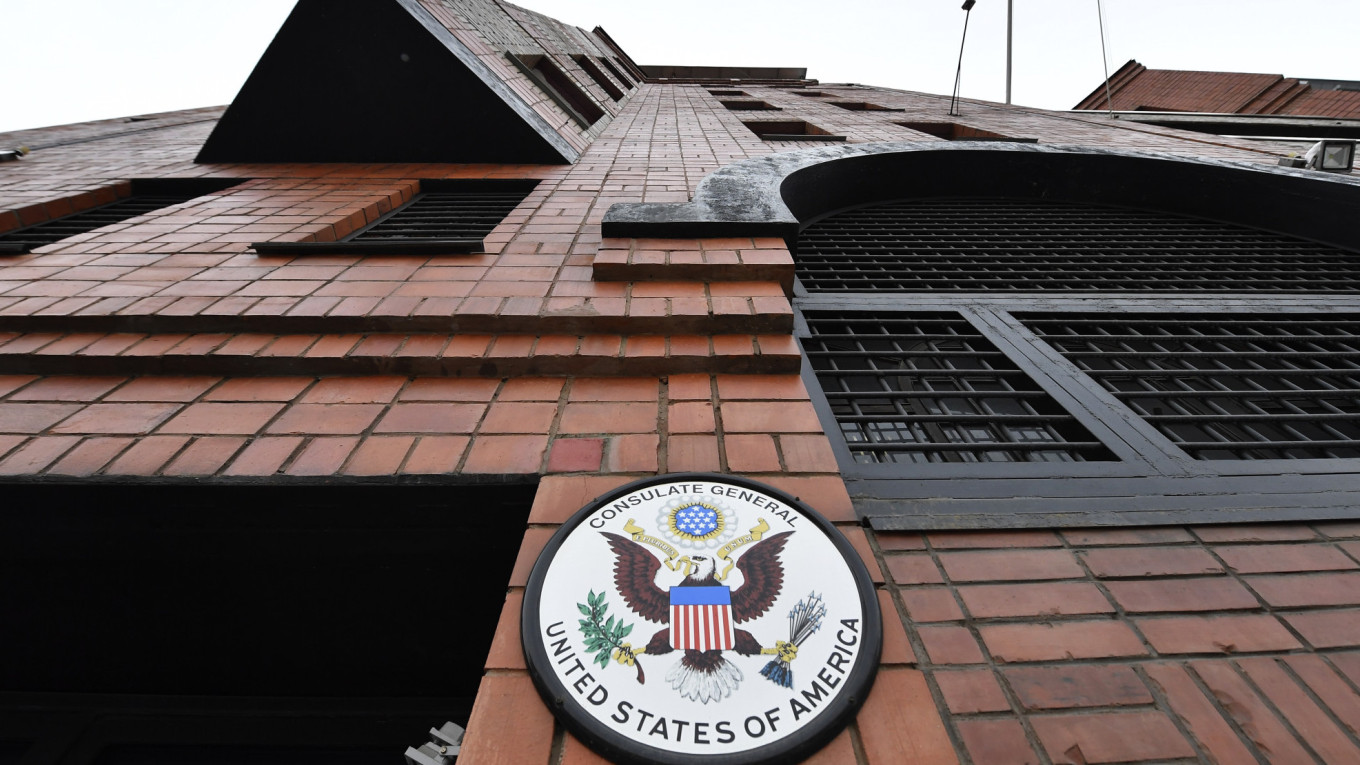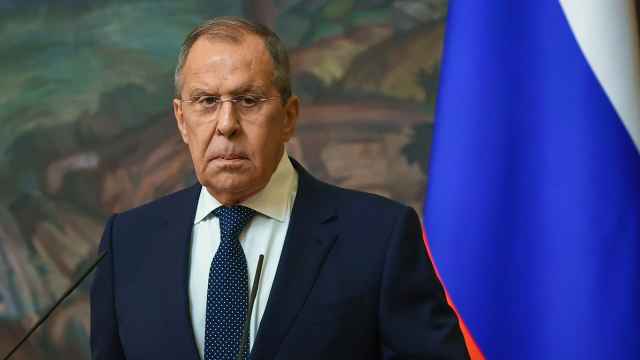The United States on Tuesday denounced Russia's arrest of a former employee of a U.S. consulate, who risks prison time for what Washington said were routine activities.
Russia's state-run TASS agency said Robert Shonov, a Russian national, was being held under a law against "confidential cooperation" with a foreign state.
Shonov worked for more than 25 years for the U.S. consulate in the Far Eastern city of Vladivostok until 2021, when Moscow imposed restrictions on local staff working for foreign missions.
The State Department said that Shonov was since working for a private company, contracted by the U.S. embassy in Moscow, that compiles press accounts from publicly accessible Russian media "in strict compliance with Russia's laws and regulations."
"The allegations against Mr. Shonov are wholly without merit," said State Department spokesman Matthew Miller, who "strongly condemned" the arrest.
Shonov could face three to eight years in prison.
"It's clear that unacceptable activities by unfriendly states are not slowing down but rather are going up," Deputy Foreign Minister Sergei Ryabkov said, as quoted by TASS.
The State Department scoffed at the allegations.
"Like any diplomatic mission in the world — including Russia's mission in the United States — the U.S. embassy contracts for local services to operate its diplomatic mission," Miller said.
"His being targeted under the 'confidential cooperation' statute highlights the Russian Federation's blatant use of increasingly repressive laws against its own citizens."
Relations between Russia and the West have deteriorated sharply since Moscow's invasion of Ukraine, with the United States leading efforts to punish Moscow and arm Kyiv.
Even before the war, the United States was at loggerheads with Russia over rules on staffing of its embassy, which Washington said had been reduced to a skeleton crew.
A Message from The Moscow Times:
Dear readers,
We are facing unprecedented challenges. Russia's Prosecutor General's Office has designated The Moscow Times as an "undesirable" organization, criminalizing our work and putting our staff at risk of prosecution. This follows our earlier unjust labeling as a "foreign agent."
These actions are direct attempts to silence independent journalism in Russia. The authorities claim our work "discredits the decisions of the Russian leadership." We see things differently: we strive to provide accurate, unbiased reporting on Russia.
We, the journalists of The Moscow Times, refuse to be silenced. But to continue our work, we need your help.
Your support, no matter how small, makes a world of difference. If you can, please support us monthly starting from just $2. It's quick to set up, and every contribution makes a significant impact.
By supporting The Moscow Times, you're defending open, independent journalism in the face of repression. Thank you for standing with us.
Remind me later.






